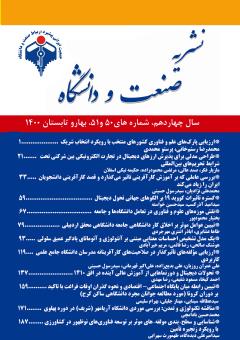مناقشه تکنولوژی و تمدن: بررسی موردی دانشگاه آریامهر (شریف) در دوره پهلوی
محورهای موضوعی : تخصصی
1 - استادیار موسسه مطالعات اجتماعی و فرهنگی وزارت علوم، تحقیقات و فناوری؛ تهران، ایران
کلید واژه: تکنولوژی, تمدن, دانشگاه صنعتی آریامهر (شریف), سیدحسین نصر, دوره پهلوی, غربانگاری,
چکیده مقاله :
بررسی تاریخی نشان میدهد که پروبلماتیک تکنولوژی و تمدن از مسائل بنیادینی است که بویژه در بین دو جنگ جهانی اول و دوم در آلمان مطرح شده و پس از آن تاریخ طنین گستردهای نیز در مقاطع مختلف در فضای فکری ایران یافته است. از جمله مهمترین صورتبندیهای این مسأله به دهه پنجاه شمسی باز میگردد که در یک چرخش فرهنگی- سیاسی گسترده از دهه چهل به دهه پنجاه، مسأله تکنولوژی و تمدن در صدر مسائل روشنفکری حکومتی و اپوزوسیون قرار میگیرد. بر خلاف تصور معمول این مسأله در آن مقطع صرفاً در سطح نظری باقی نمانده و به تصمیمات استراتژیک و اجرایی مهمی در سطوح سیاستگذاری و حکمرانی منجر میشود. از جمله مهمترین این موارد نصب سیدحسین نصر فیلسوف اسلامی سنتگرا به عنوان نایب تولیت دانشگاه سلطنتی تکنولوژی آریامهر (شریف کنونی) از سال 1351 تا 1354 است که تاکنون مورد ارزیابی تاریخی و تحلیلی قرار نگرفته است. این پژوهش به این پرسش اصلی میپردازد که انتصاب یک فیلسوف سنتگرا به ریاست پیشروترین دانشگاه تکنولوژی کشور در اوج دوران نوسازی رژیم پهلوی را چگونه میتوان توضیح داد.
The historical investigation shows that the problematic of technology and civilization is one of the fundamental issues that were raised especially between the first and second world wars in Germany, and after that history, it has also found a wide resonance in Iran's intellectual space at different times. One of the most important formulations of this issue dates back to the 1950s, when in a wide cultural-political turn from the 1940s to the 1950s, the issue of technology and civilization was placed at the top of the intellectual issues of the government and the opposition. Contrary to the common perception, this issue did not remain at the theoretical level at that point and led to important strategic and executive decisions at the policy and governance levels. Among the most important of these cases is the installation of Seyyed Hossein Nasr, a traditionalist Islamic philosopher, as the vice president of Aryamhar Royal University of Technology (now Sharif) from 1351 to 1354, which has not yet been subjected to historical and analytical evaluation. This research deals with the main question of how to explain the appointment of a traditionalist philosopher as the head of the country's leading technological university at the height of the Pahlavi regime's modernization
